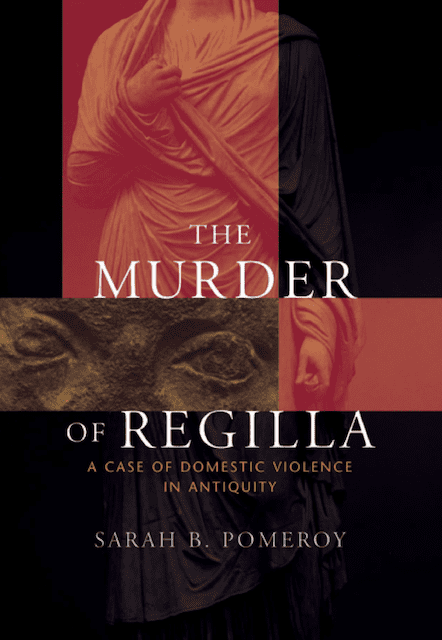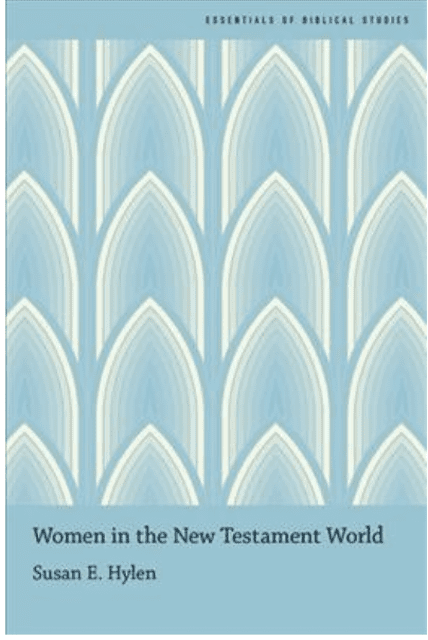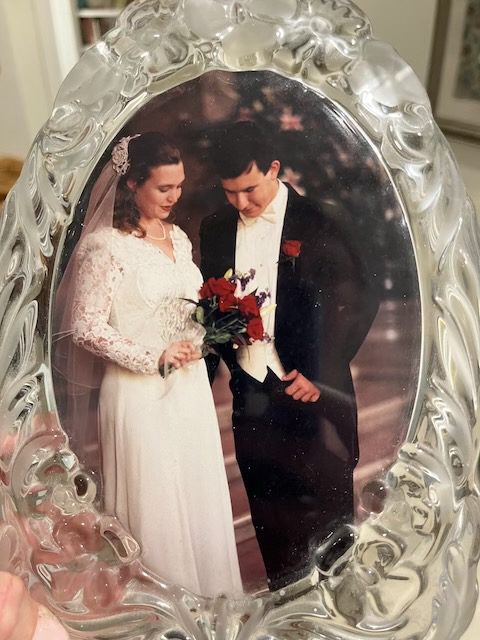Full title for this post (after an enlightening conversation with Hannah Anderson @sometimesalight)–Because the Experiences of Some Women Do Not Reflect the Experiences of All: An Open Plea to Reconsider the Impact of Complementarian Theology.
I almost didn’t post this today. I wanted to change course and write on Al Mohler’s “discipleship of the vote” and “unfaithful” Christians who vote “wrongly.” But then I realized that, even if I wasn’t writing about Al Mohler, I was writing toward Al Mohler—or, more accurately, toward the women and men Al Mohler & Co., have helped convince that complementarianism is the “rightful ordering of the church and home” which, “biblically defined,” is the teaching “of the Christian Church.” I’m not presenting evidence for his argument that complementarianism is either biblical nor an innovation (I already did that in The Making of Biblical Womanhood). I’m addressing the claim that, as Mohler describes, complementarianism is a “joyful biblical theology that begins with the celebration of the goodness of what God has created and the rightness of that order and the beauty of humanity as made in God’s image and the glory of the assignments given to men and women.”
If you are one of these folk who still believe that complementarianism is the “goodness of what God has created”, I am asking you to listen. I can’t cover everything in a single post. This is just a start. And, remember, I am not asking you to agree with me. I am only asking you to listen.
Listen because I know what it is like to be both crushed and empowered by complementarianism. I know what it is like to feel trapped by “God’s plan” for women—to lose my identity in what I felt I was supposed to be rather than who I wanted to be; to feel compelled to prioritize the idea of submission and family over my own aspirations and calling; to be broken down by immature, narcissistic men who wield their “God-given” power poorly.
I also know what it is like to be welcomed by male leaders and allowed to have a voice because I was “safe,” even an asset, as an educated woman with a career who still supported male headship and female submission. I know what it is like to be affirmed, loved, and valued within the “beautiful vision” of complementarianism. I know what it is like to benefit from the support of men because I was willing to support their authority. I have experienced both sides of the coin.
Listen also because it isn’t just experience that compels me to speak. I am speaking because I know the history too. I know that patriarchy functions as a continuum—impacting some people more than others. I know the historical patterns of how patriarchy can reward those who support it (“because it works for them”) and how women employ strategies to navigate it (the patriarchal bargain). I also know how the patriarchal continuum can obscure the harm it does: those who are impacted less do not always see the consequences for those it impacts most. For my post today, I want to introduce the idea of patriarchy functioning as a continuum. For my post next time, I want to expand to the patriarchal bargain and then pull the threads together. My hope is to provide better context for the phrase, “because it works for them,” that I used in my last post to describe why some women remain in complementarian spaces. My hope is that women who flourish in these complementarian spaces might be willing to consider a different perspective.
 So let me start with an abbreviated story I have told before (and will tell again in a longer form). It is the story of Appia Annia Regilla Atilia Caudicia Tertulla, Or, as she was known, Regilla. Classical historian Sarah Pomeroy records her story in the 2009 The Murder of Regilla: A Case of Domestic Violence in Antiquity. Regilla was the wife of a prosperous Greek politican (named Herodes Atticus) who died from a brutal beating around 160 A.D. As the source records, “A murder charge was brought against Herodes in this way. When his wife Regilla was eight months pregnant, he ordered his freedman Alcimedon to beat her for trivial reasons. She died in premature childbirth from a blow to her abdomen.”* Herodes was guilty of murdering his wife and unborn child, but he was acquitted from suffering consequences for his crime.
So let me start with an abbreviated story I have told before (and will tell again in a longer form). It is the story of Appia Annia Regilla Atilia Caudicia Tertulla, Or, as she was known, Regilla. Classical historian Sarah Pomeroy records her story in the 2009 The Murder of Regilla: A Case of Domestic Violence in Antiquity. Regilla was the wife of a prosperous Greek politican (named Herodes Atticus) who died from a brutal beating around 160 A.D. As the source records, “A murder charge was brought against Herodes in this way. When his wife Regilla was eight months pregnant, he ordered his freedman Alcimedon to beat her for trivial reasons. She died in premature childbirth from a blow to her abdomen.”* Herodes was guilty of murdering his wife and unborn child, but he was acquitted from suffering consequences for his crime.
The question, of course, is why. Why was Herodes acquitted for a crime he had committed? The short answer is Roman patriarchy—or, more accurately, the interconnectedness of Roman patriarchy and political power: Herodes benefited from a good-old-boy network which valued the emperor Marcus Aurelius’ former tutor (Herodes) over the life of a murdered woman (Regilla).
The longer answer provides more nuance to our understanding of patriarchy (both Roman and hopefully our own). It also helps us understand why medieval historian Judith Bennett argues that even though patriarchy is everywhere, it isn’t everywhere the same.
So let’s talk about the long answer.
It is true that patriarchy negatively impacted the life of Regilla. As I write in The Making of Biblical Womanhood, “male guardianship was Roman law.” Herodes had patriarchal power over his household, which included his wife. New Testament scholar Susan Hylen writes that it would be a “mistake to suggest that [Roman] women were not disadvantaged both in law and social practice. Prejudice against women was widespread, and no record remains of any sustained protest against it. The  assumption of women’s inferiority was reflected in lower education levels and fewer opportunities for women.” Roman law never granted women “official status equal” with men.
assumption of women’s inferiority was reflected in lower education levels and fewer opportunities for women.” Roman law never granted women “official status equal” with men.
Moreover, Sarah Pomeroy reminds us that stories of husbands murdering their wives without consequence would have been familiar during Regilla’s lifetime. The emperor Nero killed his pregnant wife Poppaea in a similar fashion to the murder of Regilla and the actions of Herodes in the aftermath of Regilla’s death echoed the 6th century B.C. actions of Periander, tyrant of Corinth, who murdered his pregnant wife Melissa. Mary Beard, a well-known ancient historian and author of SPQR: A History of Ancient Rome, writes that even though not all the Roman gossip was true, “there was undoubtedly a lot of vociferous nostalgia in Rome for the tough old days, when wives were kept in their place.” I can’t help but wonder if Roman nostalgia fantasizing about the good old days when husbands could legally kill their wives might shed light on the reality of Roman men like Nero and Herodes who actually did kill their wives…..
At the same time, it is also true that the implications of “male guardianship” varied considerably for Roman women. By Regilla’s lifetime, Roman women had benefited from more than a century of greater social and legal freedoms. New Testament scholars Carolyn Osiek and Margaret MacDonald write that several factors contributed to this “transformation of patriarchy,” including “the virtual disappearance of marriage by manus (transfer of the bride from the family and authority of her father to that of her husband); Augustus’s incentive of freedom from tutela (legal guardianship) to women who bore a certain number of children (three for a freeborn woman, four for a freedwoman); evidence mentioned by several authors that respectable women were beginning to recline at public banquets alongside their husbands,” and even “evidence of women conducting business, and owning businesses.” From this perspective it is no surprise that the New Testament shows women as business owners, house church leaders, and teachers. It is an accurate reflection of Roman society
Patriarchy was thus a “mixed bag” for Roman women, as Susan Hylen describes it. Inferiority may have been the general attitude toward women in the world, but it didn’t hinder women from playing prominent roles, including those of property owner and head of household. “Roman law assumed women’s inferiority to men,” Hylen summarizes, while simultaneously creating “legal pathways for women’s independent status, property ownership, and participation in civic life.”
Put more simply, all Roman women lived in a patriarchal world, but they didn’t experience patriarchy in the same ways.
Take the example of Turia. From the evidence we have, her life seems to represent a Roman example of Mohler’s “joyful…rightness” of a woman flourishing in her “God-given” role. Sometime at the very end of the 1st century B.C., a grief-stricken Roman husband inscribed how much he loved and valued his wife of forty years on a funerary monument. We don’t know her name, but some evidence suggests it was Turia, and so we call the inscription the Laudatio Turiae. “Along with you I have lost the tranquility of my existence,” wrote Turia’s husband. “Natural sorrow wrests away my power of self-control and I am overwhelmed by sorrow. I am tormented by two emotions: grief and fear—and I do not stand firm against either…Your last wishes I have regarded as law; whatever it will be in my power to do in addition, I shall do.”
Legally Turia had lived under patriarchy—the guardianship of her husband–but little hint of her subordinate position exists in his eulogy. From the evidence we have, they seemed partners, working together and loving each other until the moment she died. The desolate widower explained how Turia’s careful management and political savvy had saved him (literally) more than once during their life together; he described how appalled he had been when she suggested he divorce her because of her barrenness; he proclaimed how much she meant to him and how much he had learned from her wise actions. Turia’s husband seemed devastated by her death. He valued her as a companion, business partner, domestic caretaker, and even political ally. The love between them, along with his reliance on her, seems to have lessened the impact of patriarchy on Turia’s life. Indeed, harmonious marriage depictions (in art, on funerary inscriptions, etc.) were so common by the first century A.D. that they suggest marital happiness was not only aspirational for Roman families but a regular feature.
Before rejoicing too much at this relationship, let’s go back to Regilla. Sarah Pomeroy reminds us that, even in death, Roman women were controlled by the men in their lives. Regilla’s husband murdered her, yet he was the one who commemorated her life—depicting himself as a “grieving spouse lying in the middle of his widower’s bed in harsh old age” and describing Regilla as a pious mother, the “light” of his house. He hired a poet to craft his words, projecting an image of a more harmonious relationship. I can’t help but wonder if Herodes’ funeral inscription was our only evidence of Regilla, if we didn’t have additional evidence implicating Herodes in her murder, would our story about Regilla be more like the story we tell about Turia? Who tells the story matters, and for Roman women, when their stories were told at all, it was mostly by men writing for other men.
It is probable that Turia’s life with her husband was as joyous as he described (although there were many moments of hardship in her life–just read the inscription). For her, patriarchy seems to have worked ok. But she represents only one side of a continuum. Because Roman patriarchy was built on inequality–the subordination of one sex to the other–the potential for violence and abuse existed alongside the potential for comfort and happiness. Some women, like Turia, had good husbands with happy marriages and control over their finances and family. Some women gained freedom from male guardianship through legal loopholes and became powerful property owners in their own right. For these women, Roman patriarchy cost them little, just the backdrop to their everyday lives.
But what about women on the other side of the patriarchal continuum? While Regilla certainly had the wealth and status that should have enabled her to escape the worst of patriarchy, her husband still proved the most powerful force in her life. She wasn’t as lucky as Turia. Not because of anything she had done (evidence suggests she was an admirable wife), but rather because the patriarchal die cast in her life did not give her a husband like Turia’s. Both Regilla and Turia lived in a society that centered men and privileged male power. But this androcentric world seemed to weigh heavier on the shoulders of Regilla. For women like her, patriarchy cost more, sometimes as much as their lives.
If you have made it this far, thank you for staying with me. Now that we have talked about the patriarchal continuum, I hope you will consider the following questions.
- First, are you willing to consider that your positive experience within a patriarchal system like complementarianism may not reflect the experiences of other women?
- Second, are you willing to consider that the problem isn’t flawed individuals but rather a flawed system that creates ungodly disparities between humans created in the image of God?
- Third, are you willing to consider the possibility that your support of a system that privileges male power and emphasizes female submission might make you complicit in the harm it does to women who are not as lucky as you?
These are hard questions. Please know I am not asking you to do anything that I haven’t already done myself. I am so grateful you have made it this far, and, if you are still willing to listen, I invite you to join me next time as we talk about the patriarchal bargain.
Beth Allison Barr, a sister in Christ
*Please know that I understand many women stay within complementarian circles not because they want to but because they do not have better options or because they are staying to help others. If this is you, you are seen and known. Thank you for all that you do.
**Please also know that I believe God works through all women and men who believe. Good ministry happens through good people both inside and outside of complementarian spaces. I am thankful for all women and men who work for the Gospel wherever they may be.
***I changed the title from “open letter” to “open plea” to reflect some helpful advice I received after original post.














